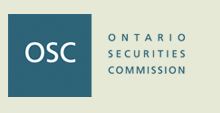
The Ontario Securities Commission (OSC) has added to its warning list Rodeler Limited, the company operating numerous binary options brands including 24option.com, 24fx.com, zoneoptions.com, grandoption.com, and binaryoption-affiliate.com.
The warning appears to have been made in order to inform residents of Ontario that this firm is not regulated with the OSC to carry out its services in this Canadian province, such as it not being registered to engage in the business of (i) trading in securities or (ii) advising anyone with respect to investing in, buying or selling securities, within Ontario.
The company is an authorized Cypriot Investment Firm (CIF), regulated by the Cyprus Securities & Exchange Commission (CySEC ). However, that wasn't enough for the Canadian regulator to prevent it from issuing the warning on the OSC website dated April 3, 2014.
The news followed just a few weeks after 24options.com announced it was offering Forex, via the launch of 24fx.com, as reported by Forex Magnates on March 19, 2014.
For Forex and/or Binary Options firms, apparently, Canada, as well as other countries have issued similar warnings against both regulated and unregulated firms - the latter of which should be a concern for clients.
Cyprus Regulated, but Not in Ontario
However, for a regulated firm, unless regulatory action is taken as in the case of the CFTC fining an off-shore broker for accepting U.S. clients without proper U.S. regulatory licensing, then the update- in Forex Magnates opinion - is more a reminder that Canadian clients would not be afforded the same protections with a foreign-regulated firm when compared to protections offered by firms authorized by OSC in the province (whilst this doesn't always mean local protections are any better or worst - just that they wouldn't be available with a foreign broker not regulated locally).
Therefore, while this applies only to Ontario residents, it's not clear if clients of Rodeler from within Ontario will be required to close their accounts or whether they can continue trading on their own will. Nonetheless, the update was added to the OSC website and Forex Magnates takes this opportunity to look at some important points, described below.
What's Next For Forex Market Regulations?
In a perfect world cross-border regulatory cooperation, and Memorandums of Understanding (MoU) between regulators should allow a passport-style access just as is commonplace through the European Union, for firms regulated in an EU-member state (like Cyprus for example).
However, besides political motives that could hinder such a global passport, there still exists differences in the standards of regulatory scrutiny firms are put under. Furthermore, a globalized regulatory landscape could be bad for competition, if the playing field was level. Besides that potential paradox, more strict rules don't guarantee protection, as seen in the case of PFG or MF Global in the U.S., whereas, on the other side of the extreme a less-compliance demanding regulatory hub isn't necessarily more risky (although in most cases it probably is for other reasons). Therefore, it is really all relative, with the best case being efficient rules that are easy and work, benefiting all involved - and something that could be a reality in the future.
This best scenario for regulation, is when the rules and processes are efficient, making it easier for business and while best protecting market participants. We are already seeing a number of regulators become more advanced in this area. As the state of global regulatory changes are evolving and thanks to efforts underway such as those of the International Organization of Securities Commission (IOSCO), helping regualtors cooperate and share information, the future should be more conducive to efficient rules, less burden on firms, and more protection to clients -hopefully.
However, first there remains much work in this field, as new standards are being considered with feedback from the Financial Stability Board (FSB) and IOSCO, and in response to requests such as by the G20. Therefore, a wave of rules could follow to help bring more standardization to markets like Foreign Exchange, although such changes may still be years away. In closing, it's still relevant to consider these developments, because even rules such as Dodd-Frank or the Volcker-Rule, which were years in the making, eventually had (and still have) a significant impact on markets, economies, and all the people involved.
24Option Was Voted Best Binary Options Broker at London Summit 2013
In terms of Rodeler, the company behind the above mentioned brands included in the most recent warning from OSC, the firm had won the Forex Magnates industry award when it was voted the best Binary Options broker at the London Summit in 2013. Therefore, such warnings can even happen to the best of them.
Finally, firms should be aware at least in places like Ontario, where their banner-ads or other related marketing efforts could draw such attention by the regulator, or solicitations made via phone or email by staff. Even if a process like this is applied, filtering via demo registrations could be another strategy or a change could be implemented on the geo-IP location for the region in question.
Ways to Not get Warned About when you are Regulated
The cost of meeting compliance requirements can be high, and not always correlated to less risk for participants, nor indicative of protection against regulatory action. Even the more cautious firms can get fined, and it can happen to companies of all shapes and size. Naturally the scope of the action is what matters, as sometimes it could be a minor administrative violation, or worst case the uncovering of fraud or a companies imminent demise. In most cases it might range somewhere in between these two with a large portion weighted towards the administrative side as firms strive to understand and comply with complex rules and based on their legal interpretations of them.
With regards to the example such as in Canada, even in the case of an unsolicited customer opening an account on their own, feedback from the clients back to their local regulatory authority could be another trigger for such a warning. For a firm, the burden of having to get regulated in every jurisdiction where it focuses in, could be both burdensome yet rewarding, so the question would be which way to go - for a given jurisdiction, and weighing the risks versus potential benefits of either choice.
Extensive research conducted by Forex Magnates regarding issues such as these, and upcoming regulatory developments, and the current state of progress for organizations like IOSCO is included in our upcoming Quarterly Industry Report (QIR) for the first quarter of 2014, expected to be available for purchase shortly.


















